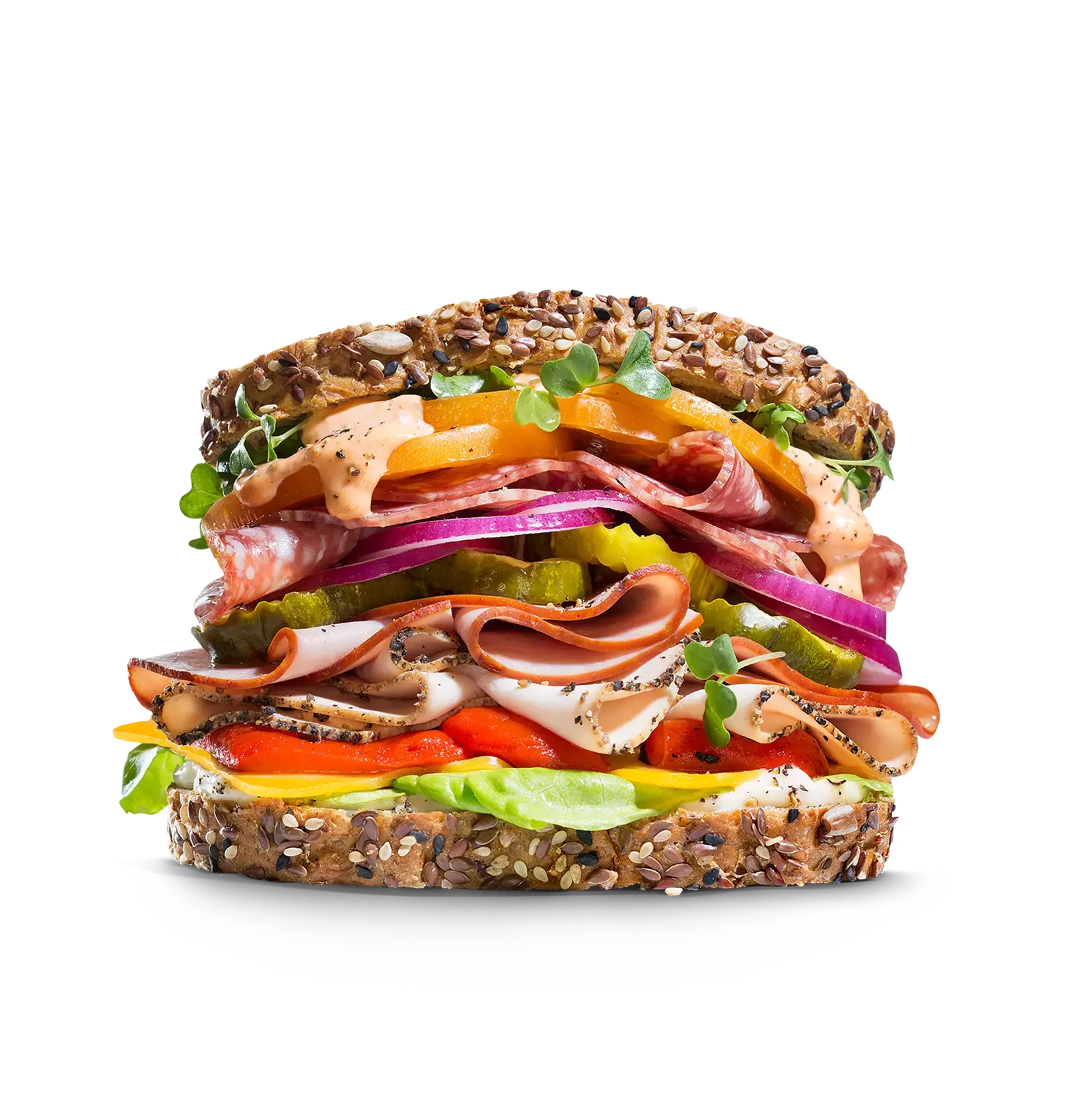In diesem Beitrag vorgestellt
Why You Need Food Safety ERP Functionality
Why You Need Food Safety ERP Functionality

On the shortlist of top priorities for every food and beverage business are delivering high-quality products, ensuring customer satisfaction, making strides toward sustainability and maintaining a healthy bottom line. But one more critically important goal that certainly belongs with the rest is implementing uncompromising food safety practices.
After all, with an estimated 600 million individuals falling ill after eating contaminated food each year, food safety would be the only organizational objective with which consumers’ health could be on the line. In fact, it’s so essential, most companies consider it a basic requirement for operating in the industry, and shoppers place great value on being able to trust the brands that they support in this regard.
That being said, optimizing your approach for food safety isn’t a simple process, as there are many factors to consider and steps to take to minimize health risks along your supply chain. Luckily, you don’t have to face the task without the right resources on your side—today’s leading food and beverage enterprise resource planning (ERP) software can provide the tools you need.
To more thoroughly convey why you need food safety ERP functionality, let’s take a closer look at four key reasons and explain them in context. We’ll also cover the features of ERP solutions suited for the challenges presented by these topics to show how they can help you mitigate risks and fulfill your commitment to this crucial cause.
1. Facilitated Compliance with Regulations
In many parts of the world, food safety compliance regulations are ramping up. The standards established in the U.S. by the Food Safety Modernization Act of 2011 are being updated as part of the New Era of Smarter Food Safety—which includes the recently published Food Traceability Final Rule—while Regulation (EU) 2019/1381 has put the spotlight on food safety across most of Europe.
Being found in violation of the applicable laws in the regions where your organization operates can come with the penalties of hefty fines or even business closure, not to mention reputational damage and lost future sales. To avoid such undesirable outcomes, you need to do all you can to ensure compliance and demonstrate diligence to enforcement agencies, including leveraging an ERP for food safety.
ERP’s Food Safety Features
With so much of compliance predicated on the ability to track raw materials and finished products backward to suppliers and forward to customers, complete bidirectional traceability is one of the most valuable benefits of a food ERP. The lot and sublot management features of these systems provide a complete record of your goods’ movement along the supply chain.
What’s more, the labeling tools offered by advanced solutions—like Aptean Food & Beverage ERP—help ensure that all necessary health and safety declarations are made on product packaging. Meanwhile, compliance document management functionalities allow manufacturers to digitally track and store all necessary regulatory forms.
2. Faster Contamination Isolation
Rapid identification and isolation of contaminated goods can help you reduce the risk that consumers will be affected. In some cases, you can even prevent a food safety emergency from occurring in the first place. That’s all the more important in a world where salmonella, E. coli and listeria outbreaks result in the involved brands being in news headlines for all the wrong reasons.
The sooner you can determine the source of any potential contaminations, the higher your chances are for preventing compromised products from ever leaving your facilities and ending up on store shelves. Time is of the essence when facing such a situation, so it’s best to use the tools that modern ERP solutions provide to streamline and expedite the process.
ERP’s Food Safety Features
The traceability tools of food and beverage ERP software are just as vital on this front as they are for adhering to compliance regulations. Lot and sublot management functionalities can capture critical item details and facilitate tracking contaminations both back to their source as well as downstream to the affected products.
Quality control features allow you to assign critical safety checks to individual team members and automate steps in the process for faster resolution, while advanced lot attribute tools let users implement their own custom rules for greater precision. The license plating and serial shipping container code (SSCC) features of Aptean Food & Beverage ERP further assist by letting you track via standardized methods of identification.
3. More Effective Allergen Segregation and Declaration
Food allergies affect more than 220 million people globally, and over 50% of adults report developing at least one food allergy after the age of 18. Those statistics alone relay the prevalence of these conditions and just how many individuals could face adverse health outcomes as a result of negligence in allergen segregation or declaration.
According to the USDA, approximately 90% of all food allergic reactions are due to the most common undeclared allergens—wheat, shellfish, eggs, fish, peanuts, tree nuts, milk and soybeans. The UK government’s list is longer, with celery, mustard and sesame also included. If your organization deals with any of these ingredients, you could use the allergen control-related advantages that food ERPs offer.
ERP’s Food Safety Features
Protecting consumers from the risks of undeclared allergens starts with proper segregation of allergenic ingredients from those that are generally safe for everyone to eat. The product specification features of food ERP software allow manufacturers to indicate the presence of allergens in their system of record so that all employees and downstream partners handle them with the necessary care to prevent unintentional contact.
Advanced attribute and comment tools help you account for the granular details related to the complex matter of safe allergen management. Better still, they allow for filtering and searching to make navigating the interface for required information easier. Once your goods have been produced and it’s time to package them for distribution, robust labeling functionalities will let you keep consumers informed on any allergen concerns associated with end products.
4. Full Recall Preparedness
An oft-cited statistic puts the average price of a food product recall at $10 million, but that figure doesn’t fully capture the potential consequences of a food safety emergency for your business. There’s the harm to your brand’s reputation to consider, as well as costs associated with issuing all necessary communications and the negative impact on future revenue and demand for your products.
Physically withdrawing affected products from store shelves, disposing of all compromised materials, dealing with potential lawsuits and weathering negative press are some of the other headaches that food and beverage companies face during recalls. To help prevent them from being necessary in the first place and make the process simpler should a recall be required, you need ERP.
ERP’s Food Safety Features
The technology of an industry-specific ERP solution can make the tasks of planning and executing a recall much simpler, helping your organization keep resultant losses to a minimum. Aptean Food & Beverage ERP really shines on this front, with dedicated features that can initiate the process in minutes with just a few simple clicks.
Our system also helps you to be proactive and prevent a recall from becoming a necessity with inspection status tools that can help you ensure your products meet all applicable standards before they are dispatched. Additionally, the non-conformance functionalities allow for the recording of issues to facilitate the required disclosures and quick resolution of customer complaints.
Trust Aptean for Your ERP for Food Safety
Now that you understand the most important reasons to focus on food safety and how food and beverage ERPs help businesses like yours address these critical considerations, you may be eager to begin evaluating your options and setting your digital transformation in motion. We’ve highlighted some of the great features and benefits you can unlock with Aptean Food & Beverage ERP above, but there are still more reasons to trust us for your needs.
First, there’s the fact that we’re more than just a vendor—we strive to be a partner for every customer and assist in the implementation process by helping to create a roadmap for your journey. Our professionals have decades of collective industry expertise and are happy to provide advice on best practices so that you get the most out of your system and achieve the outcomes you’re looking for.
Our solution was recognized with Frost and Sullivan’s 2022 Product Leadership Award in North American ERP Software for the Food and Beverage Industry, which stands as a testament to the quality, reliability and performance of our software. We offer and encourage cloud deployments on the Software as a Service (SaaS) model for greater flexibility, improved scalability, better data protection and streamlined integration with other applications.
Finally, we have a complete suite of food and beverage business software to supplement your ERP, including overall equipment effectiveness (OEE), enterprise asset management (EAM) and product lifecycle management (PLM) systems for the industry. With Aptean, you can have a full technology setup from one proven and dedicated provider.
So, ready to learn more about Aptean and why you should consider our food and beverage ERP to address your food safety concerns? Contact us today or request a personalized demo.
Erfolge von Aptean ERP-Kunden
Diese 10 Kunden aus verschiedenen Lebensmittel- und Getränkesektoren haben mit unserer Lösung mehr erreicht.



 Jack Payne | Vice President, Product Management & Solutions Consulting
Jack Payne | Vice President, Product Management & Solutions Consulting